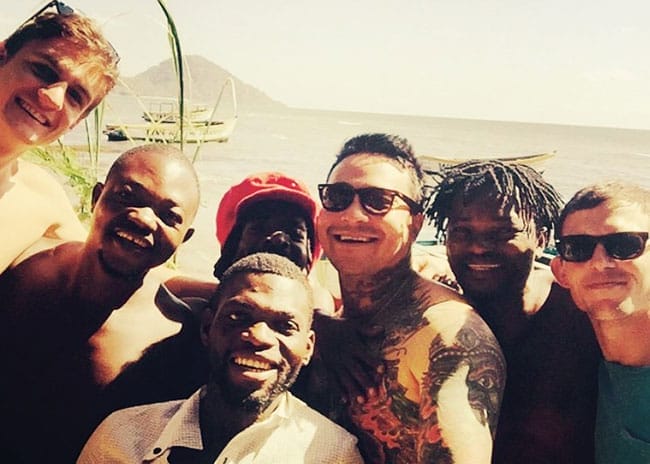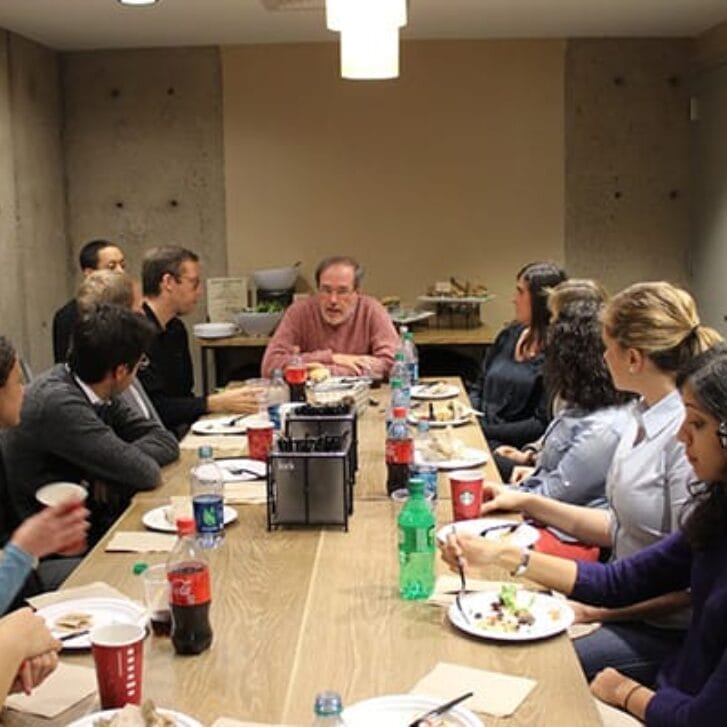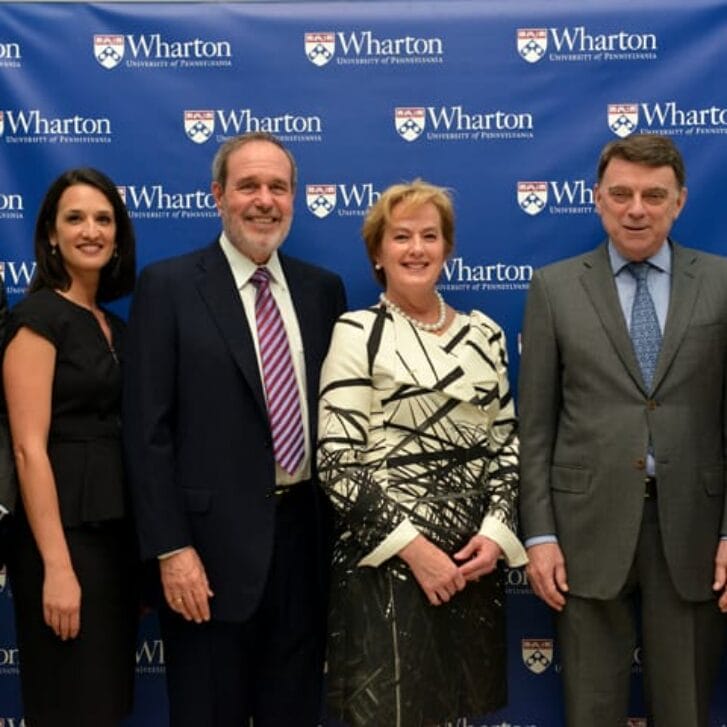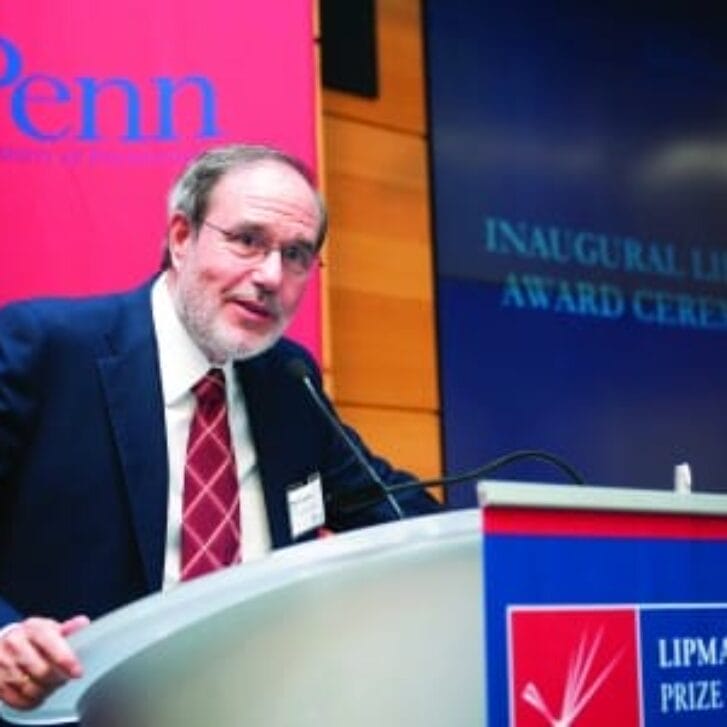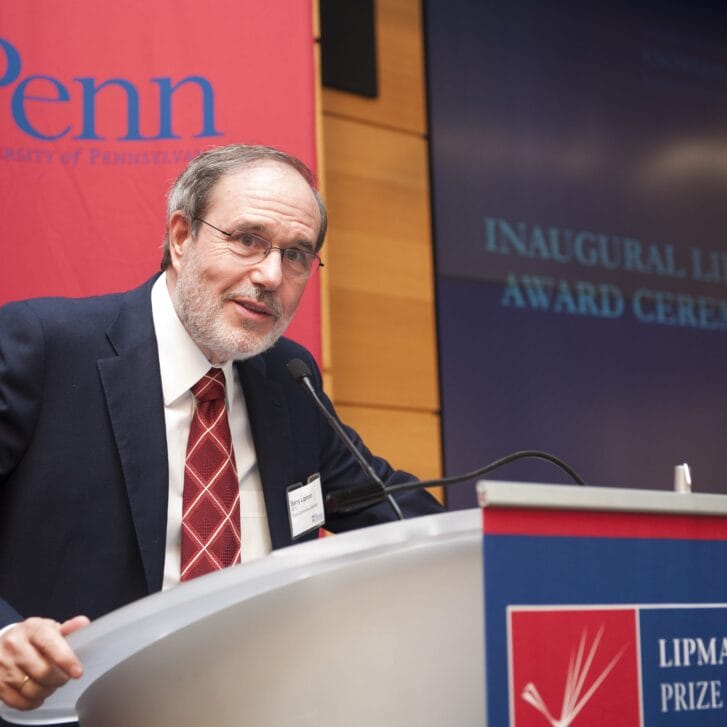My Lipman Family Prize Fellowship experience concluded last month with a once-in-a-lifetime trip to Malawi to visit this year’s Lipman Prize winner, Riders for Health, with two other fellows (Social Policy & Practice grad student Jay Pepito & Fels grad student Walker Moseley) and the director of marketing for Wharton’s Leadership Program (Kate FitzGerald). The trip had the perfect combination of cultural immersion, experiential learning, professional development and good times with friends. I honestly can’t think of a better way to culminate my first year in business school.
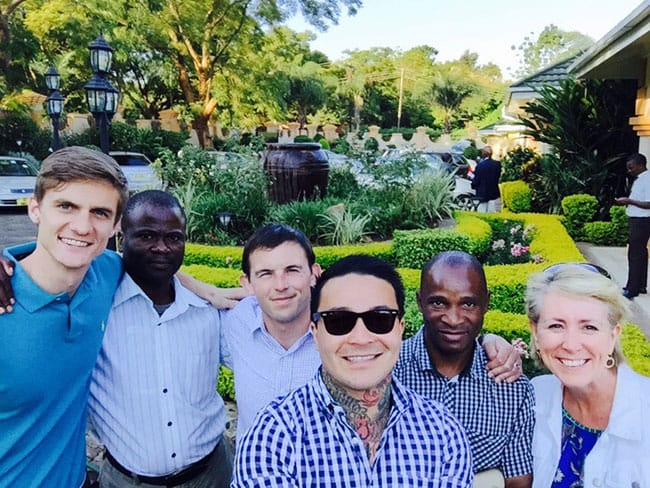
The 2015 Lipman Family Prize team in Malawi: (left to right) Walker Moseley, tour guide, Joe Butcher, Jay Pepito, second tour guide and Kate FitzGerald.
Malawi is known as “the warm heart of Africa,” a name it certainly lived up to. Our team was blown away by how warm, genuine and intelligent each person we interacted with was (especially our hosts at Riders for Health).
Before arriving in Malawi, our team spent several weeks discussing the project with the Riders team and researching their business model and programs in other countries. Once in Malawi, we had the privilege of a full day of meetings with the in-country staff, followed by a day of meetings with external stakeholders, including the Ministry of Health and various other nonprofits and partners in the area. Following these two intense days, we spent a considerable amount of time digesting this information and discussing our findings so that we could make insightful and useful recommendations.
After we finished our work for the week on a Friday afternoon in Malawi, we decided to go on mini-excursion for the weekend. Hearing that Lake Malawi was something we had to see, we jumped in our van and drove 90 minutes to a little place on the lake called the Safari Beach Lodge. Walking into the lodge and up the stairs to my “gazebo” overlooking the lake—all while surrounded by baboons running around and fighting with one another—was surreal. Relaxing in this little oasis was the perfect way to spend time with friends and reflect on our fellowship experience, the work ahead of us and just life in general.
After some fun in the sun (and a minor kayaking misfortune), our group headed back to focus on the task at hand and see the Riders for Health business model in action. The Malawi office’s premier program utilizes trained couriers and motorcycles to deliver blood samples across the country from remote clinics in small villages to labs and regional hospitals. The day’s trip had us following a courier to a remote village where our team witnessed firsthand the medical conditions in the country, followed by visits to a testing lab and regional hospital. This experience revealed the dire conditions in the country, as well as provided valuable information for our final day’s presentation.
With Riders for Health’s COO (who traveled from the organization’s HQ in the United Kingdom) and key local staff members, we shared our findings and recommendations—which spanned topics such as social enterprise approaches, marketing recommendations and the importance of a strong organizational culture.
Coming from a career as a Marine officer, I came to business school with the hopes of using business to have an impact and help solve societal problems. Learning about marketing, operations, management structure and company culture in the classroom is one thing, but applying this material to provide insights into a global health organization’s strategic roadmap for one of its newest countries and delivering our findings to the COO and country manager brought the material to life in a way that’s just not possible in Huntsman Hall.
After the work was finished, our group had one last excursion—a two-day African safari. This was the first time in Africa for all of us, so we felt that this was something we had to take advantage. We spent two days and nights in tented chalets at Thawale Lodge, where we went on two game drives and a boat ride along the river that spans the Majete Game Reserve. Highlights included zebras, warthogs, impalas and an entire elephant family of seven that walked straight through our camp site (luckily our tents were raised).
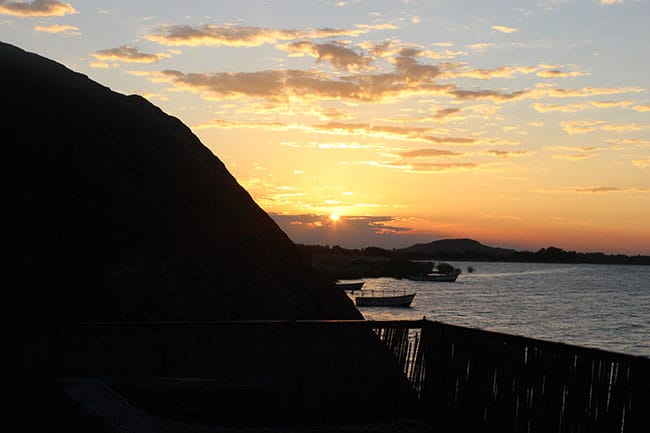
You can’t get this view from Huntsman Hall … the sunset at Lake Malawi.
Run out of the Wharton Leadership Program, the Lipman Family Prize Fellowship is truly a gem at the University of Pennsylvania and was the most rewarding experience of my first year at Wharton. The fellowship brings together a diverse group of 12 students from programs across the University (both undergraduate and graduate) who have an interest in social impact-related work and in participating in a yearlong, intensive experience that includes weekly meetings, monthly leadership sessions, two retreats and various social events. During the year, fellows focus their energy on completing due diligence to assist the Barry and Marie Lipman Prize Committee in making its decision on which organizations should be deemed the three finalists for the annual prize. The fellowship experience culminates with a site visit to one of the three finalist organizations in order to work on a consulting project, such as mine to Malawi.
Trying to make sense of the Wharton experience during your first year can (at times) be a challenge, especially for those that have interests in the social impact space. The Lipman Fellowship allowed me to be surrounded by like-minded individuals from across campus, learn about incredible organizations making meaningful progress in the social sector (like Riders) and develop professionally while I prepare for my next step after the military. This trip reminded me not only why I came to business school in the first place but, more importantly, how much value you gain from traveling to new places and developing worthwhile relationships.
Reflecting on this experience, it’s important for me to thank Marie and Barry Lipman W70, the Lipman Fellowship staff (Umi Howard and Mariah Casias), my fellow fellows and coordinators, and Riders for Health for affording me this incredible, life-changing experience, which reinvigorated me as I prepare to finish business school and attack life’s next challenge.
Editor’s note: Learn more about the Lipman Fellows and the Lipman Prize in our past coverage, “The Lipman Fellows Round Table.”




















